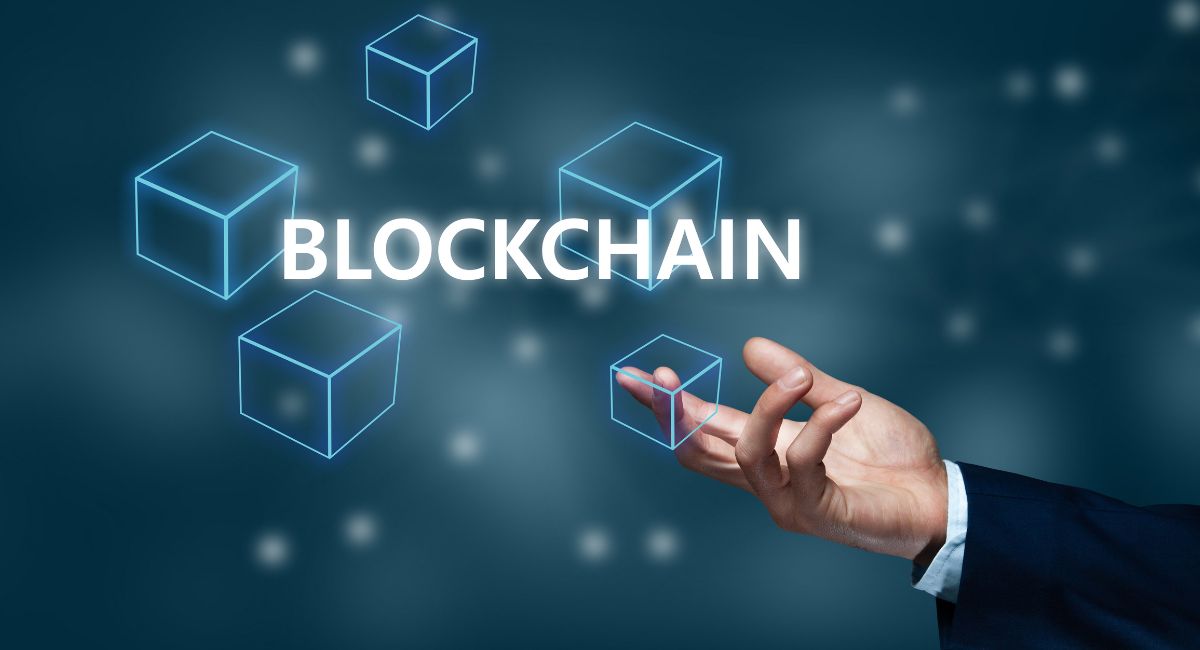The Role Of Blockchain Development Companies In Web3 Space
In recent years, the evolution of the internet has witnessed a groundbreaking transformation with the advent of Web3, a paradigm shift that aims to decentralize and democratize the digital space. At the forefront of this revolution are blockchain development companies, playing a pivotal role in reshaping the way we interact with the online world. This article delves into the significance of blockchain development companies in the context of Web3 space and explores how they contribute to the creation of a more transparent, secure, and user-centric digital ecosystem.
Understanding Web3 space:
Web3 represents the next phase of the internet, characterized by decentralized protocols, smart contracts, and distributed applications (DApps). Unlike its predecessor, Web2, which is dominated by centralized platforms, Web3 leverages blockchain technology to empower users with greater control over their data, assets, and online interactions. It aspires to eliminate the intermediaries that currently govern the digital realm, fostering a more equitable and user-centric internet.
The Role of Blockchain Development Companies:

- Smart Contract Development: Blockchain development companies are at the forefront of Web3 by specializing in the creation of smart contracts. These self-executing contracts, encoded with predefined rules, automate processes without the need for intermediaries. Smart contracts enable trustless transactions, reduce fraud, and enhance transparency in various sectors, making them a cornerstone of decentralized applications (DApps) and the broader Web3 ecosystem.
- Decentralized Application (DApp) Development: One of the primary roles of blockchain development companies in the Web3 space is the design and development of DApps. These applications operate on decentralized networks, providing users with increased privacy, security, and control over their data. From decentralized finance (DeFi) platforms to gaming and social media applications, DApps represent the decentralized future of software development, and blockchain development companies are key players in bringing these ideas to life.
- Blockchain Infrastructure Development: The success of Web3 relies heavily on the robustness of blockchain infrastructure. Blockchain development companies contribute significantly to the creation and maintenance of these infrastructures, ensuring scalability, security, and interoperability of blockchain protocols. By developing and optimizing the underlying technology, these companies lay the foundation for a decentralized internet that can handle the demands of diverse applications and users.
- Tokenization and Digital Assets: Blockchain development companies play a crucial role in the tokenization of assets. This involves converting physical or digital assets into blockchain-based tokens, enabling fractional ownership and introducing new possibilities for fundraising and liquidity. Whether it’s real estate, art, or financial instruments, blockchain-based tokenization is transforming traditional industries, and these companies are instrumental in facilitating this paradigm shift.
- Interoperability Solutions: Interoperability is a key challenge in the blockchain space, and development companies are actively working on solutions to address this issue. By creating bridges between different blockchain networks, these companies enhance the compatibility and communication between diverse protocols. Interoperability is essential for the success of Web3 as it allows for the seamless transfer of data and value across different decentralized ecosystems.
- Consensus Algorithm Development: Blockchain development companies contribute to the evolution of consensus algorithms, the mechanisms that ensure agreement among network participants. Innovations in consensus algorithms, such as proof-of-stake (PoS) and sharding, aim to improve the scalability, energy efficiency, and security of blockchain networks. These advancements are crucial for the sustainable growth of Web3.
- Privacy and Security Solutions: Security and privacy are paramount in the Web3 space. Blockchain development companies are actively involved in developing solutions that enhance the privacy of transactions and the security of decentralized networks. Through techniques like zero-knowledge proofs and privacy-focused blockchain implementations, these companies address concerns related to data protection and confidentiality in the decentralized ecosystem.
- Community and Ecosystem Building: Building and nurturing communities around blockchain projects is another critical role of development companies. By engaging with the community, providing support, and fostering collaboration, these companies contribute to the growth and sustainability of the projects they are involved in. Strong community support is often a key factor in the success of Web3 initiatives.
- Education and Advocacy: As pioneers in the Web3 space, blockchain development companies take on the responsibility of educating the broader community about the benefits and potential of decentralized technologies. They engage in advocacy efforts to promote the adoption of blockchain and Web3 principles, aiming to create a more informed and receptive environment for the decentralized future.
- Research and Development: Staying at the forefront of innovation is crucial in the rapidly evolving Web3 landscape. Blockchain development companies invest in research and development to explore new technologies, improve existing protocols, and contribute to the academic and technical advancements in the field. This commitment to ongoing innovation ensures that Web3 continues to push the boundaries of what is possible in the digital realm.
The role of blockchain development companies in the Web3 space is multifaceted and pivotal. From laying the foundational infrastructure to developing cutting-edge technologies, these companies are driving the evolution of a decentralized internet, bringing about a paradigm shift in the way we interact with digital systems. Their expertise and contributions are shaping the future of a more transparent, secure, and user-centric digital ecosystem.
It’s more developed, has more opportunities, dapps, companies, background blockchain development. Larger team. More decentralized.
— Prestidigitor.eth (@Prestidigitor) December 8, 2023
Challenges faced by Blockchain Development Companies in web3 space

Blockchain development companies operating in the Web3 space encounter a myriad of challenges that stem from the unique nature of decentralized technologies and the evolving landscape. Here’s a detailed exploration of some of the key challenges faced by these companies:
- Interoperability Issues: Achieving interoperability between different blockchain networks remains a significant challenge. As the Web3 space expands, the lack of standardized protocols for communication and data exchange hinders seamless interaction between diverse blockchain platforms. Blockchain development companies must invest resources in developing interoperability solutions to ensure a more interconnected and collaborative decentralized ecosystem.
- Scalability Concerns: Scalability is a persistent challenge in blockchain development, especially as the user base and transaction volumes increase. Many blockchain networks face limitations in terms of transaction throughput and processing speed. Addressing scalability concerns is crucial for Web3 applications to handle a growing user base without compromising on performance.
- Regulatory Uncertainty: The regulatory landscape for blockchain and cryptocurrencies is continually evolving. Blockchain development companies in the Web3 space operate in an environment with varying degrees of regulatory clarity, and navigating these uncertainties can be challenging. Adhering to compliance standards while innovating in a rapidly changing space poses a delicate balancing act for these companies.
- Security Risks: Despite the inherent security advantages of blockchain, the technology is not immune to vulnerabilities. Smart contract exploits, 51% attacks, and other security risks pose threats to decentralized systems. Blockchain development companies must employ rigorous security practices and conduct thorough audits to mitigate these risks and ensure the integrity of the Web3 applications they develop.
- User Adoption and Education: Educating the broader community about the benefits and functionalities of Web3 technologies is a significant challenge. Blockchain development companies face the task of making their products accessible to users who may not be familiar with decentralized concepts. Overcoming the learning curve and fostering user adoption require effective communication strategies and user-friendly interfaces.
- Token Standards and Interoperability: The diversity of token standards and protocols complicates the development of interoperable applications. Different blockchains often use distinct token standards, making it challenging to create seamless cross-platform experiences. Standardizing token formats and enhancing interoperability is crucial for the success of decentralized finance (DeFi) and other cross-chain applications.
- Environmental Concerns: The energy consumption associated with certain consensus algorithms, especially in proof-of-work (PoW) blockchains, has raised environmental concerns. Blockchain development companies in the Web3 space are increasingly pressured to adopt more energy-efficient consensus mechanisms or contribute to sustainability initiatives to address these environmental considerations.
- Lack of Talent: The rapid growth of the Web3 space has resulted in a demand for skilled blockchain developers, creating a talent shortage. Blockchain development requires expertise in cryptography, distributed systems, and smart contract development. Companies face challenges in recruiting and retaining qualified professionals, leading to competition for top talent in the industry.
- Ethical Considerations and Governance: Decentralized systems often involve complex governance structures, and the ethical considerations surrounding decision-making processes can be challenging. Blockchain development companies must navigate issues related to governance, including ensuring fairness, transparency, and community involvement in decision-making, to build trust in their projects.
- Adapting to Technological Evolution: The blockchain space is dynamic, with continuous technological advancements and the emergence of new trends. Staying ahead of the curve and adapting to technological evolution is a constant challenge for blockchain development companies. Remaining innovative and incorporating the latest developments is essential to maintaining a competitive edge in the rapidly changing Web3 landscape.
While the Web3 space holds immense potential for transforming the digital landscape, blockchain development companies face a range of challenges. Overcoming these challenges requires a combination of technical innovation, regulatory adaptability, and community engagement. As the Web3 ecosystem continues to evolve, addressing these challenges will be crucial for the sustained growth and success of blockchain development companies.
Also, read – What Are Metaverse Companies Building And Why Is It Important?

Conclusion:
As we navigate the transformative landscape of Web3, blockchain development companies emerge as key architects shaping the decentralized future of the internet. Their expertise in smart contract development, DApp creation, blockchain infrastructure, tokenization, and interoperability solutions collectively contributes to the evolution of a more inclusive, transparent, and user-centric digital environment. With Web3 paving the way for a decentralized internet, these companies play a crucial role in building the foundations of a new era in the online world.
Stay informed with daily updates from Blockchain Magazine on Google News. Click here to follow us and mark as favorite: [Blockchain Magazine on Google News].
Get Blockchain Insights In Inbox
Stay ahead of the curve with expert analysis and market updates.
latest from tech
Disclaimer: Any post shared by a third-party agency are sponsored and Blockchain Magazine has no views on any such posts. The views and opinions expressed in this post are those of the clients and do not necessarily reflect the official policy or position of Blockchain Magazine. The information provided in this post is for informational purposes only and should not be considered as financial, investment, or professional advice. Blockchain Magazine does not endorse or promote any specific products, services, or companies mentioned in this posts. Readers are encouraged to conduct their own research and consult with a qualified professional before making any financial decisions.

 Bitcoin
Bitcoin  Ethereum
Ethereum  XRP
XRP  Tether
Tether  Solana
Solana  Dogecoin
Dogecoin  USDC
USDC  Cardano
Cardano  Lido Staked Ether
Lido Staked Ether  TRON
TRON  Avalanche
Avalanche  Sui
Sui  Wrapped stETH
Wrapped stETH  Chainlink
Chainlink  Toncoin
Toncoin  Shiba Inu
Shiba Inu  Stellar
Stellar  Wrapped Bitcoin
Wrapped Bitcoin  Hedera
Hedera  Polkadot
Polkadot  WETH
WETH  Bitcoin Cash
Bitcoin Cash  Uniswap
Uniswap  Pepe
Pepe  Litecoin
Litecoin  LEO Token
LEO Token  Hyperliquid
Hyperliquid  Wrapped eETH
Wrapped eETH  NEAR Protocol
NEAR Protocol  Internet Computer
Internet Computer  Ethena USDe
Ethena USDe  USDS
USDS  Aptos
Aptos  Aave
Aave  Mantle
Mantle  Bittensor
Bittensor  Cronos
Cronos  POL (ex-MATIC)
POL (ex-MATIC)  Virtuals Protocol
Virtuals Protocol  Ethereum Classic
Ethereum Classic  Render
Render  Artificial Superintelligence Alliance
Artificial Superintelligence Alliance  Arbitrum
Arbitrum  MANTRA
MANTRA  Ethena
Ethena  Tokenize Xchange
Tokenize Xchange  WhiteBIT Coin
WhiteBIT Coin 



